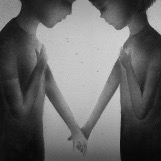
It is well known that music is a core aspect of every human being’s life, whether lyrical or instrumental songs, beatboxing, AI-generated pieces, humming… All of these play a vital role in our daily lives, making one’s existence somehow harmonious. Indeed, some of us listen to music for the sake of relaxation from stress or to have some fun, while others try to resonate with it on a deeper level in order to escape reality and find where their true selves reside.
Unfortunately, the modern industry has been dominated by “artists” releasing music with mediocre, blunt, and provocative lyrics or with repetitive orchestral/backing tracks taken from previous artists, making it seem authentic and vintage in some sort of way. Only a small group of composers, songwriters, and producers around the world are still trying to build this genuine connection between people and music, pushing us to think and feel with rhythms and words: Sami Yusuf, Ryan O’Neal, La Zarra, Hans Zimmer, Amal Mathlouli… are all underrated names who either work behind the scenes and aren’t given enough credit or aren’t widely acknowledged since they’re not associated with “Huge Labels”.
One of the names aforementioned, Ryan O’Neal, is the prominent founder of the music project ‘Sleeping at Last,’ originally a band since 1999 that is now O’Neal’s solo endeavor. He is a singer-songwriter, composer, and producer who balances instrumental songs (using vocal enhancers) with lyrical songs. Through conversations with his friends, interactions with the natural world inspire him to create music that can, in the same frame, influence others. All of his masterpieces intend to show how the experience of being a human being is what matters the most, pushing people to stop focusing on the horizon and to look within. For example, in one of his projects - Atlas - he wrote a song called “Heart” in which we can hear his daughter whispering the heartbeats she’s listening to with her toy stethoscope, ending the song with his whole family’s heartbeats. This shows how important it is to be vulnerable enough in facing risks, letting our guard down with each other, and falling in love unafraid. Through delicate melodies, he tries to illustrate abstract concepts to push his audience to imagine how the Senses, any involuntary human feeling or life-forming event, look and feel like.
Nietzsche once affirmed, “Without music, life would be a mistake.” Each word or chord travels to your brain and stimulates your body, so you could synchronize your being with the actual song, traveling somewhere far and forgetting each string that attaches you to society’s norms. Sleeping at Last isn’t merely a combination of artistic components to make listeners mesmerized; it’s a project urging them to go beyond their daily thoughts and to discover how far they can get with their imagination. In fact, there is no proper escape from this cruel world other than diving into our own little, yet immense, imagination through the beauty of music.